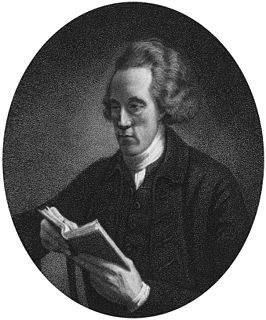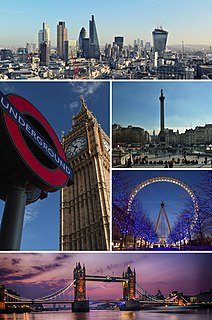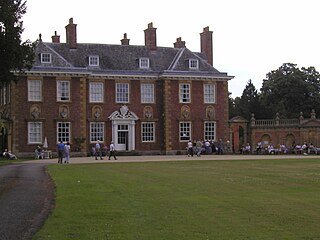Thomas Lyon, 8th Earl of Strathmore MP was a Scottish nobleman, and Tory politician who sat in the House of Commons from 1734 to 1735 when he succeeded to the peerage as Earl of Strathmore.
John Tempest Jr. was a County Durham landowner and Tory politician who sat in the House of Commons from 1768 to 1794.
Sir John Strange was a British politician and judge. He was born to another John Strange of Fleet Street, London and his second wife, Mary Plaistowe. He became a student at the Middle Temple on 11 July 1712 before starting a pupillage at the chambers of Charles Salkeld, who trained Lord Hardwicke. He was called to the Bar on 27 October 1718.

Joseph Townsend was a medical doctor, geologist and vicar of Pewsey in Wiltshire, perhaps best known for his 1786 treatise A Dissertation on the Poor Laws in which he expounded a naturalistic theory of economics and opposed the provision state provision, either outdoor or otherwise.
Sir Thomas Palmer, 4th Baronet, of Carlton was a British politician.
Hugh Hume-Campbell, 3rd Earl of Marchmont PC FRS, styled Lord Polwarth between 1724 and 1740, was a Scottish politician who sat in the House of Commons from 1734 until 1740 when he succeeded to the peerage as Earl of Marchmont. He sat in the House of Lords as a representative peer from 1750.

George Byng of Wrotham Park in Middlesex, was a British politician who sat in the House of Commons from 1768 to 1784.

Henry Hare, 3rd Baron Coleraine FRS; FSA was an English antiquary and politician who sat in the House of Commons from 1730 to 1734.

James Townsend was an English Whig politician and Lord Mayor of London in 1772–73. It has been claimed that he was the first person of mixed race to hold such positions.
Sir George Champion (1713-1754) of St Clement's Lane, London, and Baulking, Berkshire, was an English merchant and politician who sat in the House of Commons from 1734 to 1741. He was notably past over for the role of Lord Mayor of London.
William Knollys, known as Viscount Wallingford, of St George's, Hanover Square, Westminster, was a British Army officer and politician who sat in the House of Commons from 1733 to 1740.
Sir Edward Williams (1659–1721) of Gwernyfed, Breconshire was a British politician who sat in the English House of Commons between 1697 and 1708 and in the British House of Commons from 1708 to 1721.
Sir Thomas Drury, 1st Baronet FRS of Wickham Hall near Maldon, Essex, and Overstone, Northamptonshire was an English politician who sat in the House of Commons between 1741 and 1747.
John Gore (c.1689–1763) of Bush Hill, Middlesex was a politician who sat in the House of Commons between 1747 and 1761.
Hon. Nicholas Herbert was a British politician who sat in the House of Commons between 1740 and 1774.

Richard Chauncey or Chauncy was a London merchant who was four times the Deputy-Chairman of the East India Company and three times the Chairman.
George Harrison, of Balls Park, near Hertford, was a British politician who sat in the House of Commons for 25 years between 1727 and 1759.
Sir Henry Marshall (1688–1754), of St. Mary at Hill, London and Theddlethorpe, Lincolnshire, was a British merchant and Tory politician who sat in the House of Commons from 1734 to 1754. He was Lord Mayor of London for the year 1744 to 1745
Thomas Corbett of Nash, Pembrokeshire, was a British Treasury official and politician who sat in the House of Commons from 1734 to 1751.








